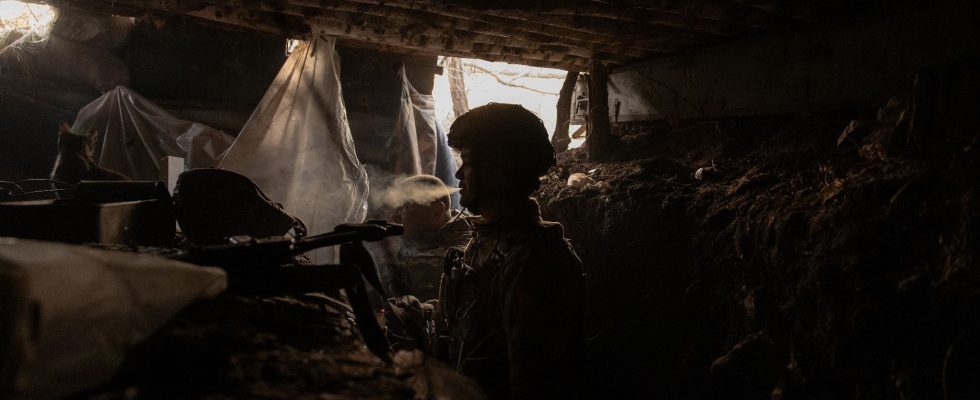The United States’ accusation is formal. Russia reportedly used a suffocating chemical weapon dating back to World War I in its invasion of Ukraine. Chloropicrin, a so-called “choking” chemical agent, is used against Ukrainian forces in violation of the Chemical Weapons Convention (CWC), according to a State Department report published on Wednesday May 1st. This agent is, in fact, formally prohibited by the Organization for the Prohibition of Chemical Weapons (OPCW) based in The Hague, created to implement and monitor compliance with this Convention which dates from 1993.
Completely “unfounded” accusations, Moscow reacted on Tuesday May 2 at midday.
Causes lung edema
“The use of these chemicals is not an isolated incident and is likely motivated by the desire of Russian forces to dislodge Ukrainian forces from fortified positions and make tactical advances on the battlefield,” the Department of Defense said. ‘State. Now mainly used as a fungicide and insecticide treatment to sterilize soil and seeds, chloropicrin was used as an asphyxiating chemical weapon during the First World War, mixed with “sulfur mustard” to lower its freezing point.
This chemical agent causes damage to the pulmonary tract, which, in the case of severe inhalation, can lead to lung edema causing death. In less serious cases, the product causes irritation of the lungs, eyes, skin or even nausea, vomiting and diarrhea which can last several weeks.
That’s not all: according to the State Department report, Vladimir Putin’s army has also used riot gas as a weapon against Ukrainian soldiers in recent months. A method also banned by the CIAC, because these gases pose choking hazards when used in closed spaces, such as enemy trenches, forcing Ukrainian soldiers to flee under enemy fire. Earlier in the conflict, the Ukrainian army had already reported the use of grenades loaded with CS and CN tear gas, according to Reuters.
At the beginning of April, Ukrainian soldiers reported “almost daily” tear gas attacks to dislodge them from isolated positions, according to The Guardian. In a statement posted on social media in March, Ukraine’s armed forces previously said they had recorded more than a thousand incidents in which Russia used “tear gas munitions equipped with toxic chemicals banned for use in warfare.” with 250 cases in February alone, reports CNN.
New wave of US sanctions
As early as March 2022, a month after the start of the war, Washington had promised a severe response if Russia took the extreme step of violating the Chemical Weapons Convention (CIWC), reminds CNN. This Wednesday, Washington announced in parallel with this formal accusation a new wave of sanctions targeting Russian or foreign companies or individuals, accused of participating in the Russian war effort in the invasion of Ukraine. In addition to Russian defense companies, as well as Chinese entities, these sanctions also concern several research units and companies involved in Russian chemical and biological weapons programs. Russia has declared in the past that it no longer possesses a military chemical arsenal.
“Russia’s continued disregard for its obligations under the CIAC is consistent with the operations to poison Alexei Navalny and Sergei and Yulia Skripal with Novichok-type nerve agents,” the department continues. of State in its press release.
Poisoning is notoriously one of the spectacular assassination techniques of the Russian government, and has, on numerous occasions, attracted the attention of the international community in recent years: recently, Alexeï Navalny, former opponent of Russian President Vladimir Putin, died on February 16, was the victim of a serious poisoning which he attributed to the Kremlin. Former Russian double agent Sergei Skripal and his daughter Yulia Skripal were also poisoned in England in 2018.
